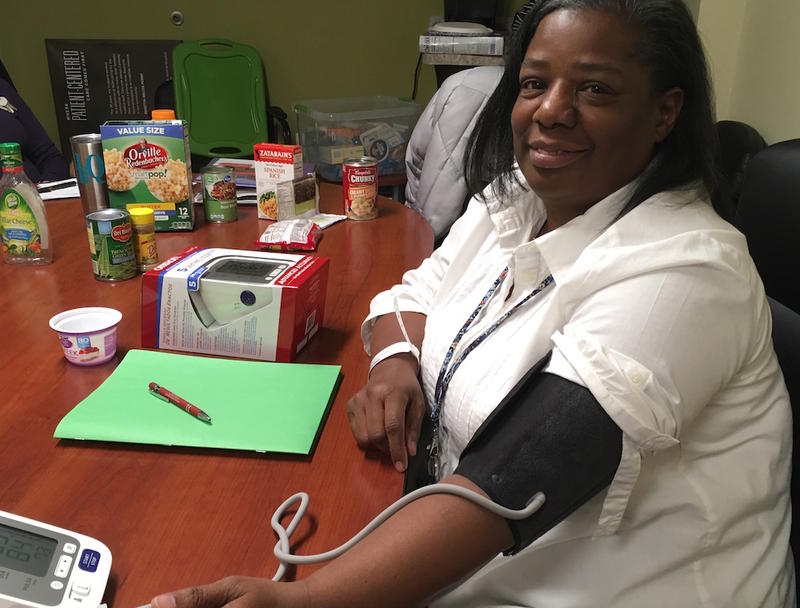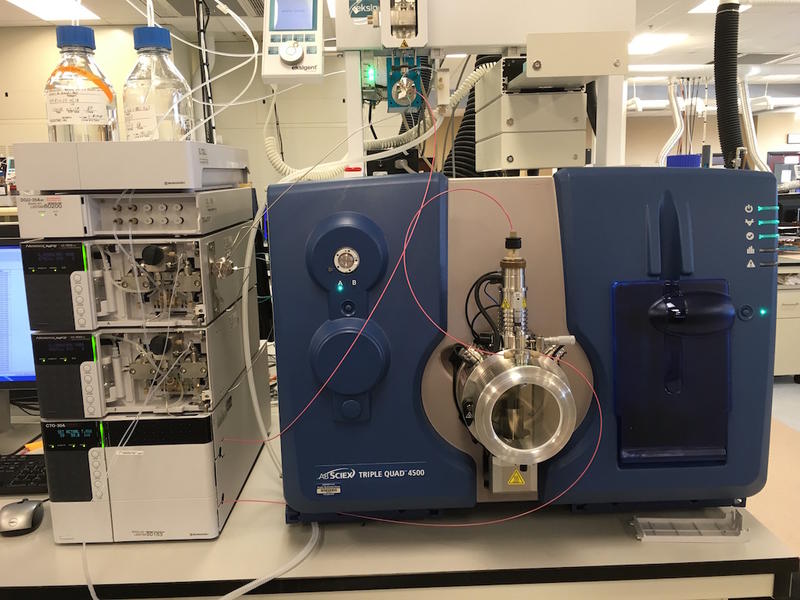
A Nashville company has developed a drug test to make hypertension patients a little more honest about taking their blood pressure medication. The screening developed by Aegis Sciences is meant to spark a candid conversation about whether someone is sticking with their prescription, because many don’t.
The
side effects can be pretty severe at first, leading many people to skip their pills. The medication causes patients to feel tired and nervous. In men, it can cause arousal problems. Many report nausea, dizziness, diarrhea or constipation.
“All of these side effects are worse than the high blood pressure,” says Sharon Fulson, a Nashville woman who just started taking the medication last year.
Research shows roughly half of patients don’t take their medicine like they should, even though heart disease is the
leading cause of death in America. But it’s a disease without many unpleasant symptoms — until someone has a stroke.
That’s why it’s called the ”
silent killer.”
“It’s not that you don’t want to take it, because you know it’s going to help you. But it’s the getting use to it,” says Fulson.

And cheating on medication is often hard to detect. The stress of being in a doctor’s office can elevate patients’ blood pressure, so testing a patient’s blood pressure doesn’t confirm for cardiologists whether their prescription is being followed. Doctors call this the “white coat syndrome.”
Hoping for positive tests
The new drug test from Aegis, dubbed
KardiAssure, is supposed to inject more honesty into the doctor-patient relationship. Urine samples are shipped to a lab in MetroCenter. Most of the time, the equipment looks for drugs someone isn’t supposed to have in their system.
However, this works the other way. The automated machines search for 80 kinds of blood pressure and cholesterol medication, spitting out the results in three minutes.
The test only can tell whether a patient has taken pills in the last day or two, but CEO Frank Basile says it’s at least a starting point.

“What we give doctors is a tool that enables them to have a very focused conversation with their patients and to — first of all — bring the problem into the open and then to talk about exactly why,” he says.
The conversation-starter has been effective for cardiologist
Bryan Doherty in Dickson, who has been working with Aegis to try out the drug test. He ordered a sample from one man. The results showed he wasn’t taking his medicine like he’d indicated.
“He immediately turned around and told me that the cost was an issue,” Doherty says. “I think there was a degree of embarrassment there potentially or a feeling of letting me down in some way … something that had not come up in a 25-minute initial encounter when we had spoken before.”
Of course, the test has a cost, too — about $100 — though Doherty says insurance seems to cover it.
But the screening could avoid other unnecessary tests or additional prescriptions, says
Tom Johnston. He runs the hypertension clinic at Centennial Medical Center where he says other than calling the pharmacy to make sure people are refilling their prescription, he takes their word for it.
“I think there are a lot of times where you’re questioning in your mind whether someone has taken their medicine or not,” he says. “I think it would be good for the patient, too, for the doctor to know that they’re not taking their medicine so that we may not go down the wrong pathway.”
Johnston, who is not affiliated with Aegis, says his only concern would be setting up an adversarial relationship with some patients. But he also believes there’s a way around that, by making them understand that taking their medication properly could be a matter of life and death.
Sarah Avery of Nashville says she’s fully aware of the consequences.
“My daddy died because he didn’t take his medicine,” she says. “I had a stroke. And that was because I wasn’t taking my medicine.”
Hypertension runs in her family. Her mom and grandmother also battled high blood pressure. Still, the medication is such a drag, she’s decided at times to stop without consulting her doctor.
“I lied. Really, I lied. He said, ‘Are you taking your medicine?’ I said, ‘Mmhmmm. Yeah, my momma makes sure that I do.’ I was just lying,” she says.
“And you know what I got out of it? I’m on three high blood pressure pills.”


